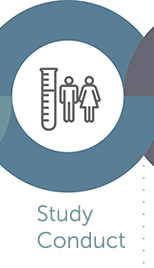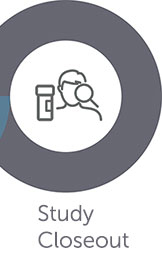|
|
The BARD Center promotes excellence in the design and analysis of research studies, and provides biostatistical and methodological expertise, as well as scientific leadership, through collaborative relationships with Boston Children's Hospital investigators. Areas of statistical expertise include pre-clinical experiments, clinical trials, observational studies (retrospective and prospective), longitudinal studies, randomized studies, health economics and econometrics, survey research, qualitative research and high-dimensional functional neuroimaging research. |
| Institutional Centers for Clinical and Translational Research (ICCTR) |
The ICCTR at Boston Children’s is the central research support structure. The ICCTR promotes collaboration with clinical research methodologists and provides infrastructure for the conduct of clinical research at the hospital. The ICCTR staff is a consolidated group of research professionals who are knowledgeable and skilled in all aspects of clinical research, including biostatistics, database development and data management, study startup, study operations, regulatory support and education. ICCTR resources are organized around four centers and a number of supporting cores and services. The Centers include Biostatistics and Research Design, Clinical Research Operations Center and the Translational Research Program. |
| Clinical Research Informatics Team (CRIT) |
| Boston Children’s investigators and study teams can consult with CRIT about developing databases and any other clinical research informatics needs. CRIT has designed and developed a variety of informatics tools to address the growing needs of the Boston Children’s clinical research enterprise, including application software for creating randomization schemes, web-based clinical data management systems and online collaborative workspaces like SharePoint and Open Atrium. CRIT provides expertise in the use of InForm™, REDCap, and REDCap Cloud, web-based electronic data capture and clinical data management systems. Request a consult with CRIT. |
|
|
|
|
| Research Computing |
Research Computing’s Research Coding Shop developed a paperless consenting REDCap system for eConsenting and remote consenting. Also, Research Computing offers multiple platforms to securely store, compute or share data. |
| Technology and Innovation Development Office (TIDO) |
| If investigators are planning a study involving their own intellectual property, they should consult with TIDO. TIDO works with investigators to translate research and clinical ideas into new therapies, diagnostics and devices through the protection and licensing of intellectual property. TIDO can also connect investigators with industry partners, when appropriate. |
|
|
| Harvard Catalyst |
| Harvard University’s Clinical and Translational Science Center serves the research community. It offers courses and educational programs, research consulting, tools for study design and clinical trial collaboration, guidance on regulatory issues, and pilot funding for novel, high-impact projects — all freely available to trainees, fellows and faculty. |
|






